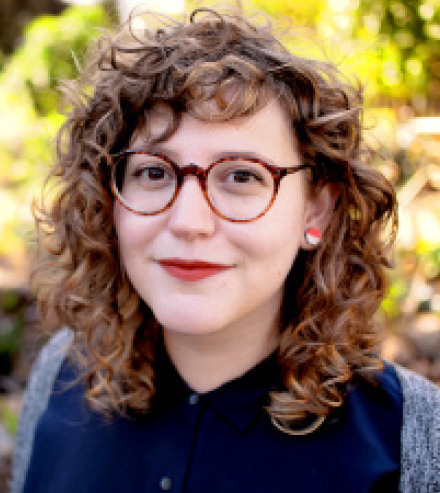What did you do with your arts and sciences degree?
Jane Solomon ’07 turned her passion for language into a life as a lexicographer

Many viewers of the BBC’s 1995 adaptation of Pride and Prejudice found themselves obsessed with some aspect of the show: Colin Firth’s portrayal of Mr. Darcy, perhaps, or the dress and manners of Regency England.
For Jane Solomon, who watched the show repeatedly as a teen, it was the language.
“My sister and I would camp out in our living room and watch Pride and Prejudice once a month,” she recalls. “I was really captivated by the different accents, the words, the different varieties of English.”
A few years later, Solomon arrived at Northwestern, eager to study English literature but less excited about some of the classes she’d have to take to fulfill the College’s distribution requirements. Her trepidation turned to delight, however, when she discovered she could fulfill one of those distros with a linguistics class.
“It blew my mind,” Solomon recalled. “The sounds, the logic of language, the meaning of words — these were all things that I was very, very excited about. It almost felt like cheating to be able to study that.”
Solomon declared a linguistics minor in addition to her major in English. “I had no idea what I’d do with it,” she said. “But as an English major, you learn about the importance of narrative and storytelling. I figured, maybe naively, that whatever I wanted to do, I’d be able to tell the story of how I wound up from here to there.”
Writing her own definition of success
It wasn’t until the end of her senior year that an answer came to Solomon, when she learned that a lexicographer would be teaching a class on how dictionaries are made. “I didn’t even know what a lexicographer was at the time,” she says.
Solomon took the class and never looked back. Shortly after graduating, she volunteered at a lexicography conference and let attendees know she was interested in the field. Freelance work soon followed, allowing Solomon to work on tasks such as crafting sentences to illustrate the proper usage of words. In 2013, she landed her first full-time job in the field at Dictionary.com.
Today, Solomon’s fascination with language has bloomed into a full-time career. She defines new words and updates terms whose meanings have evolved. She serves on the committee that determines which new emoji will appear on smartphones and social media. She’s even written a children’s book, The Dictionary of Difficult Words (Frances Lincoln Children's Books, 2019) which was published in April.
Solomon is grateful to be writing her own definition of success. “I was able to follow something I was passionate about,” Solomon says. “I didn’t know what it would lead to, but I assumed it would lead to something, and hopefully something I was interested in. Reading a lot and studying the things I studied turned out to be very good training for a lexicographer.”
Want to make a difference? Support Weinberg College with a gift today.
Back to top